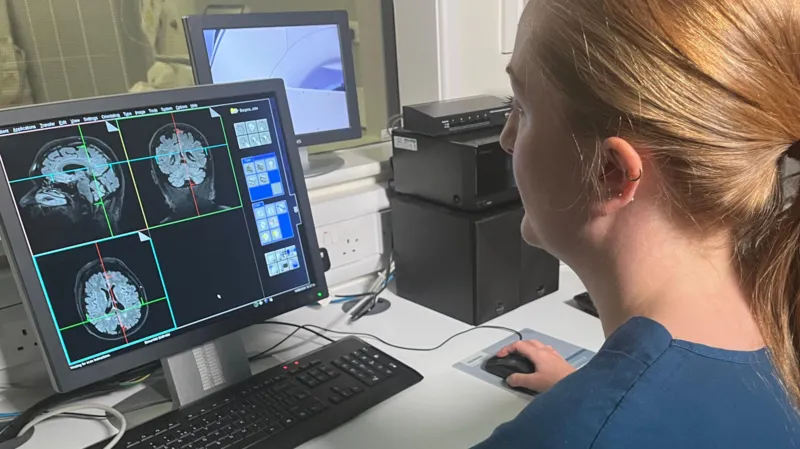One million brain scans used to assess dementia risk
Scientists are hoping that access to more than 1.6 million brain scans collected from patients across Scotland could help predict a person’s risk of dementia.

A team of 20 researchers from the universities of Edinburgh and Dundee have been given unprecedented permission to view a huge number of anonymous scans gathered from across the Scottish population over a decade.
It is the first time scientists in the UK have had access to such large volumes of valuable data.
They will use artificial intelligence (AI) to analyse the scans to see if there are patterns or signs of dementia.
Dementia is characterised by the build-up of different types of protein in the brain, which damages brain tissue and leads to cognitive decline.
Molecular and cellular changes to the brain usually begin many years before any symptoms occur.
The researchers hope that by studying such a large number of brain scans they can develop tools that will help radiologists with early detection.
The scientists have been given permission by NHS Scotland to use 1.6 million CT and MRI images collected during routine clinical care between 2008 and 2018.
Previous research has been limited by access to much smaller numbers of scans.
The decision to grant permission to study so many scans was taken by NHS Scotland’s Public Benefit and Privacy Panel for Health and Social Care, whose role is to make sure applicants have thought through the public benefit and privacy implications.
All of the scans will be anonymised so researchers know nothing about the patients whose scans they are studying.
A patient being informed they are at risk of developing conditions such as Alzheimer's could help them make changes to slow down progress of the disease.
Former journalist Willy Gilder, who was diagnosed with Alzheimer’s three years ago, said: "If you know you’re at risk, you can make changes that are going to improve your brain health."
The 71-year-old, from Edinburgh, said: “Because I was diagnosed early, I know that keeping very mentally active, for example, is going to help me.
"There are also treatments coming down the line for Alzheimer’s that are exciting, but they work in the early stages of the disease, which is why early diagnosis is so important."
The latest research project is called Scan-Dan (Scottish AI in Neuroimaging to predict Dementia and Neurodegenerative Disease) and forms part a global research collaboration called NEURii.
Prof Emanuele Trucco, an expert in AI and medical imaging at Dundee University, said: "Scotland and the UK are at the forefront of clinical data research.
"This new data set will be of great use to neurological researchers."
Prof Trucco said the scientists did not know exactly what they were looking for but because it was such a large number of brain scans he was confident they would be able to identify patterns associated with dementia.
“So if we see your brain, even if we are not entirely sure what we are seeing in the first instance, I can still predict whether you are at risk,” he said.
The team said they would have a better understanding of the technology’s potential by early next year but that it would take another few years to develop a product that could be used in practice.
Prof Will Whiteley, of Edinburgh University’s centre for clinical brain sciences is co-leading the project.
He said: “Currently treatments for dementia are expensive, scarce and of uncertain value.
"If we can collect data from a large group of people at high risk, who then give their consent to take part in trials, we can really start to develop new treatments.
"Using these images needs a lot of permissions so we have gone through a whole process with Public Health Scotland to take account of all the confidentiality and legal arrangements that are needed to use these."
-BBC







